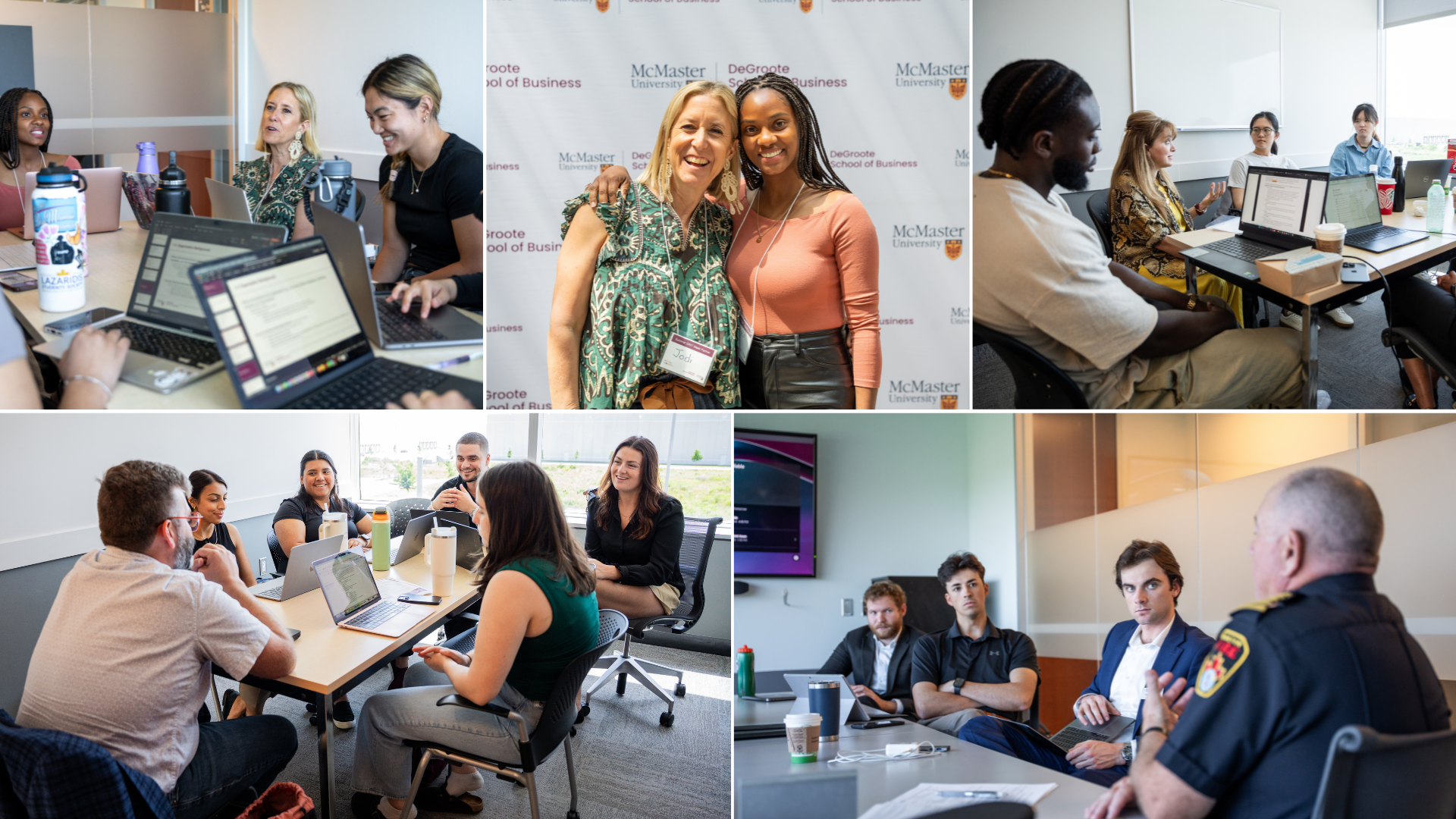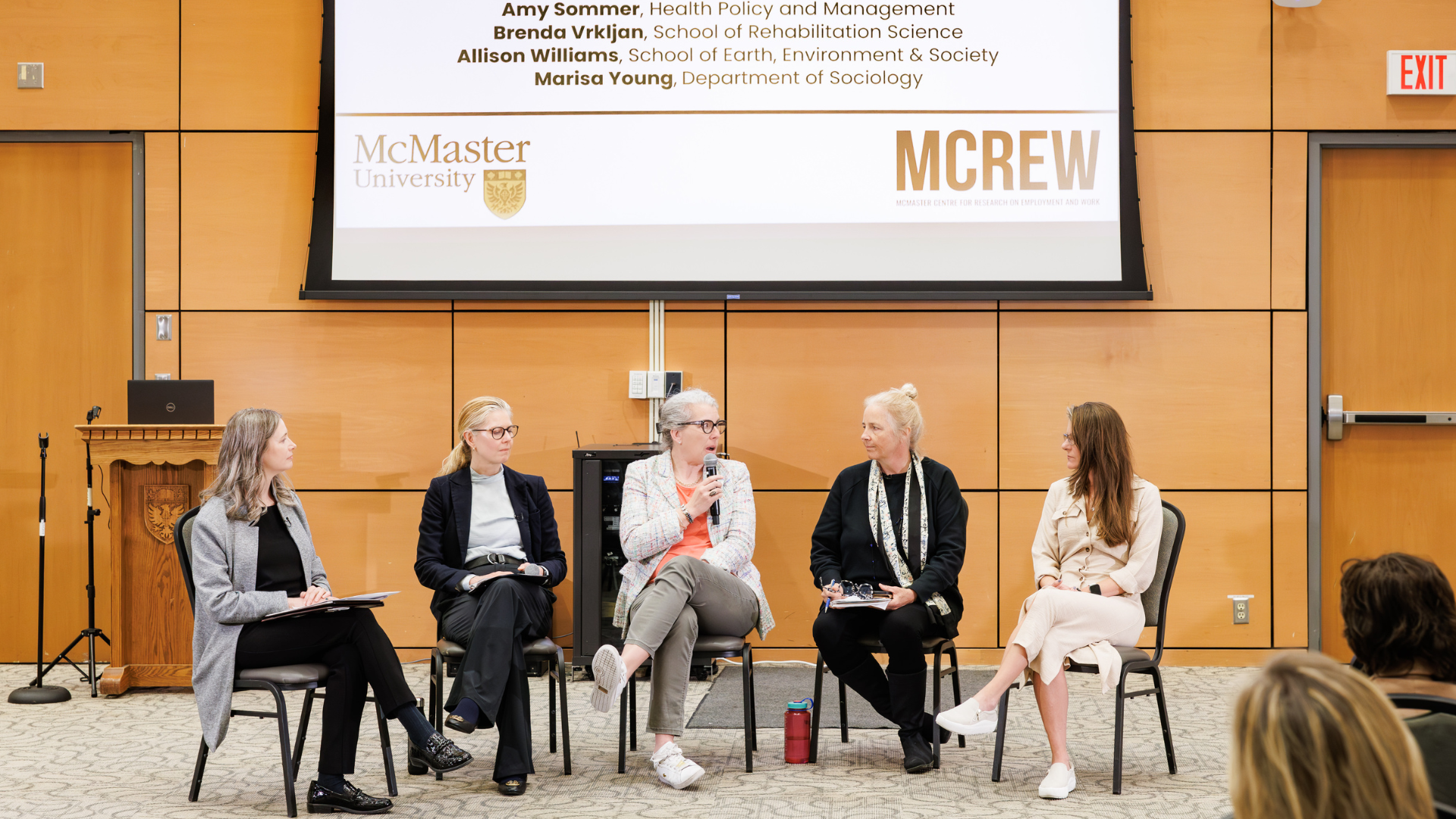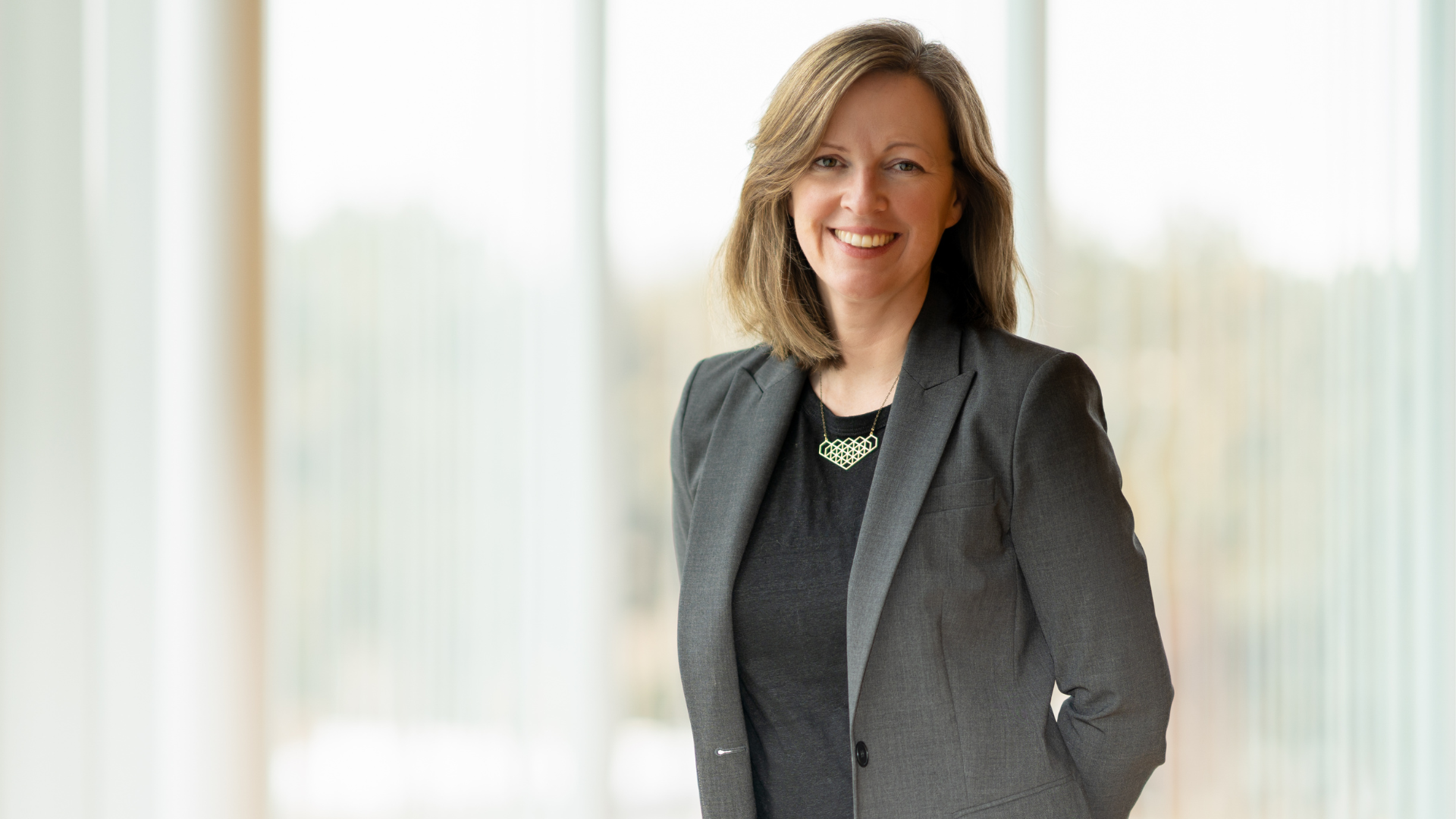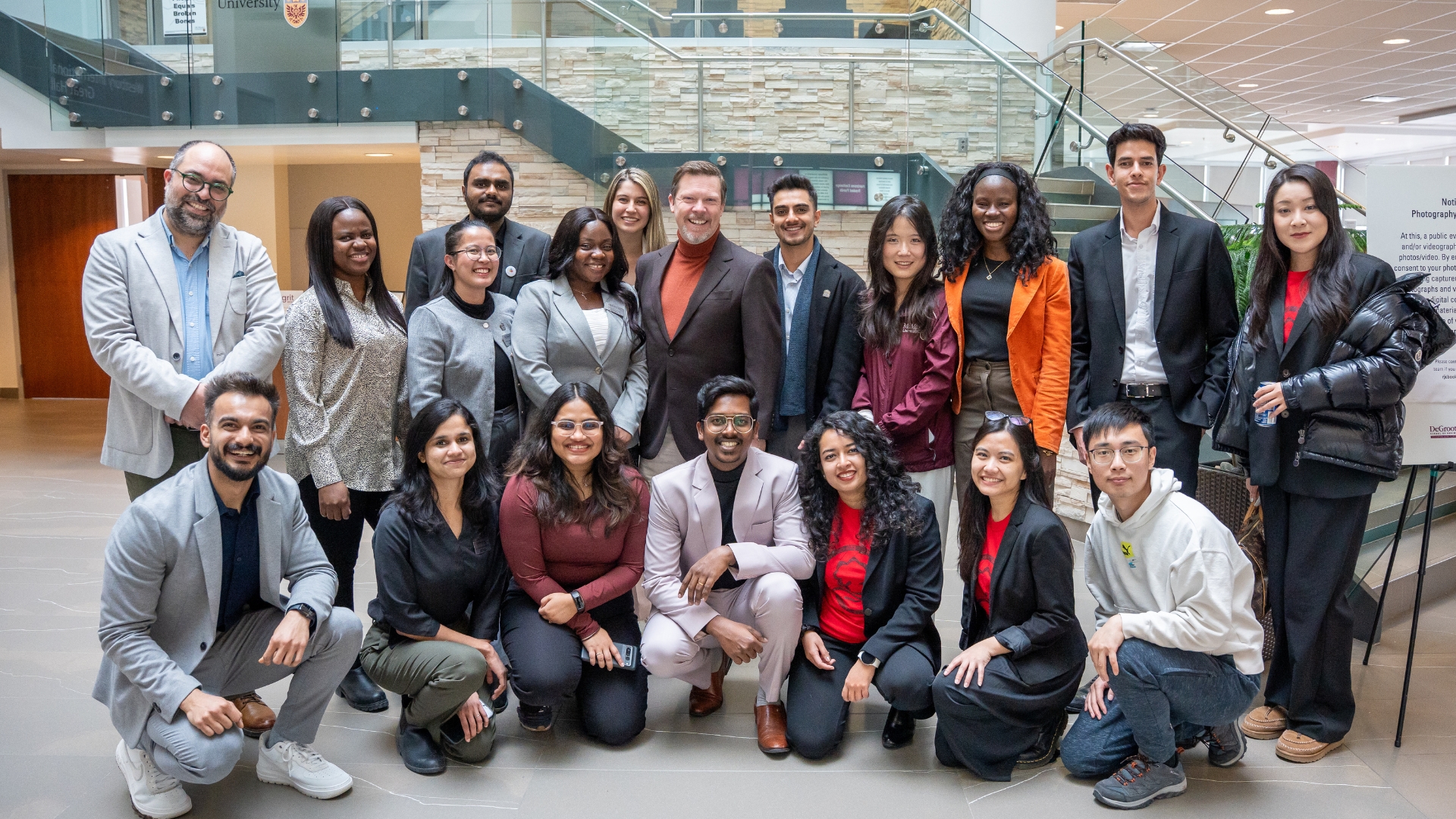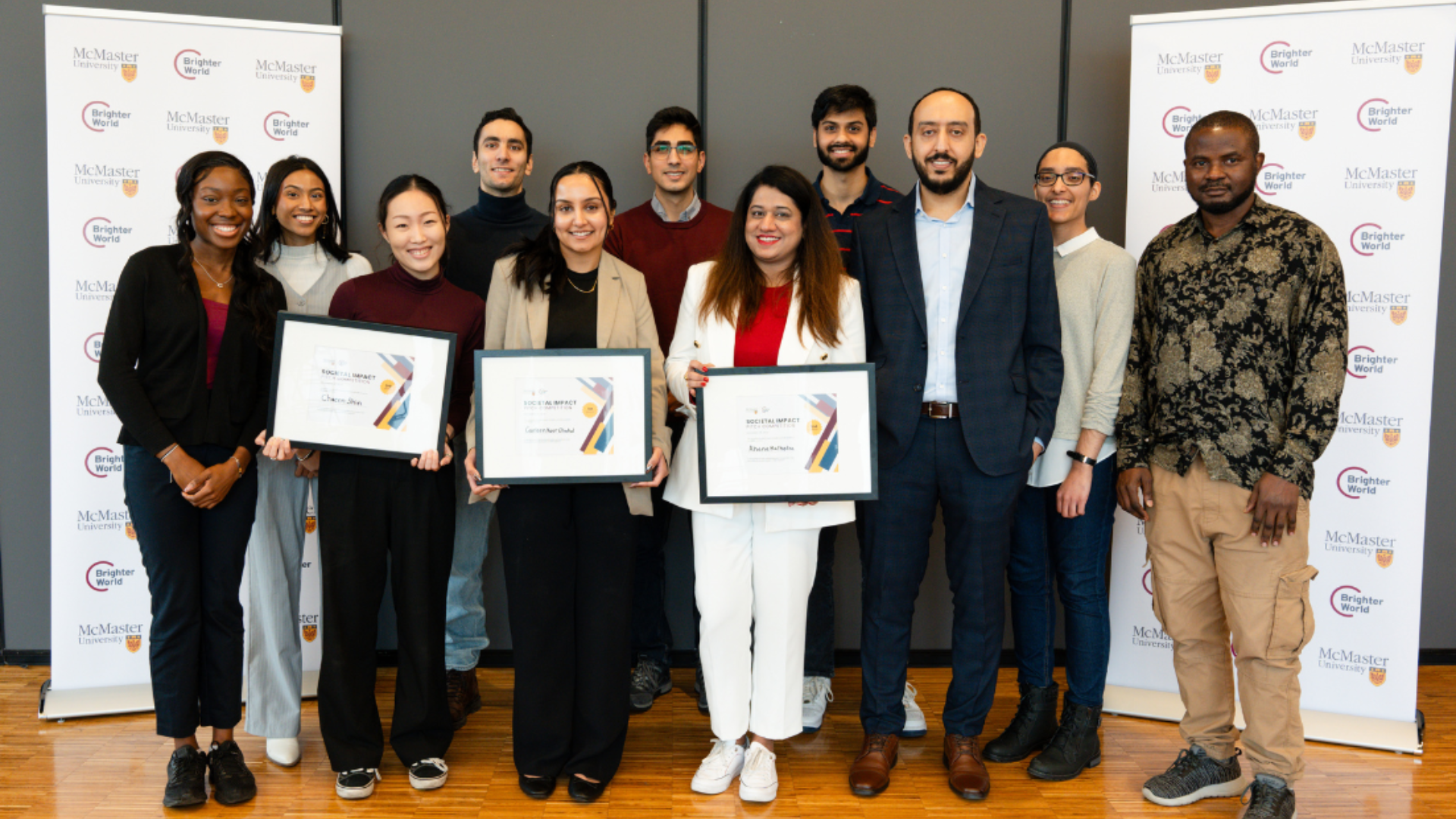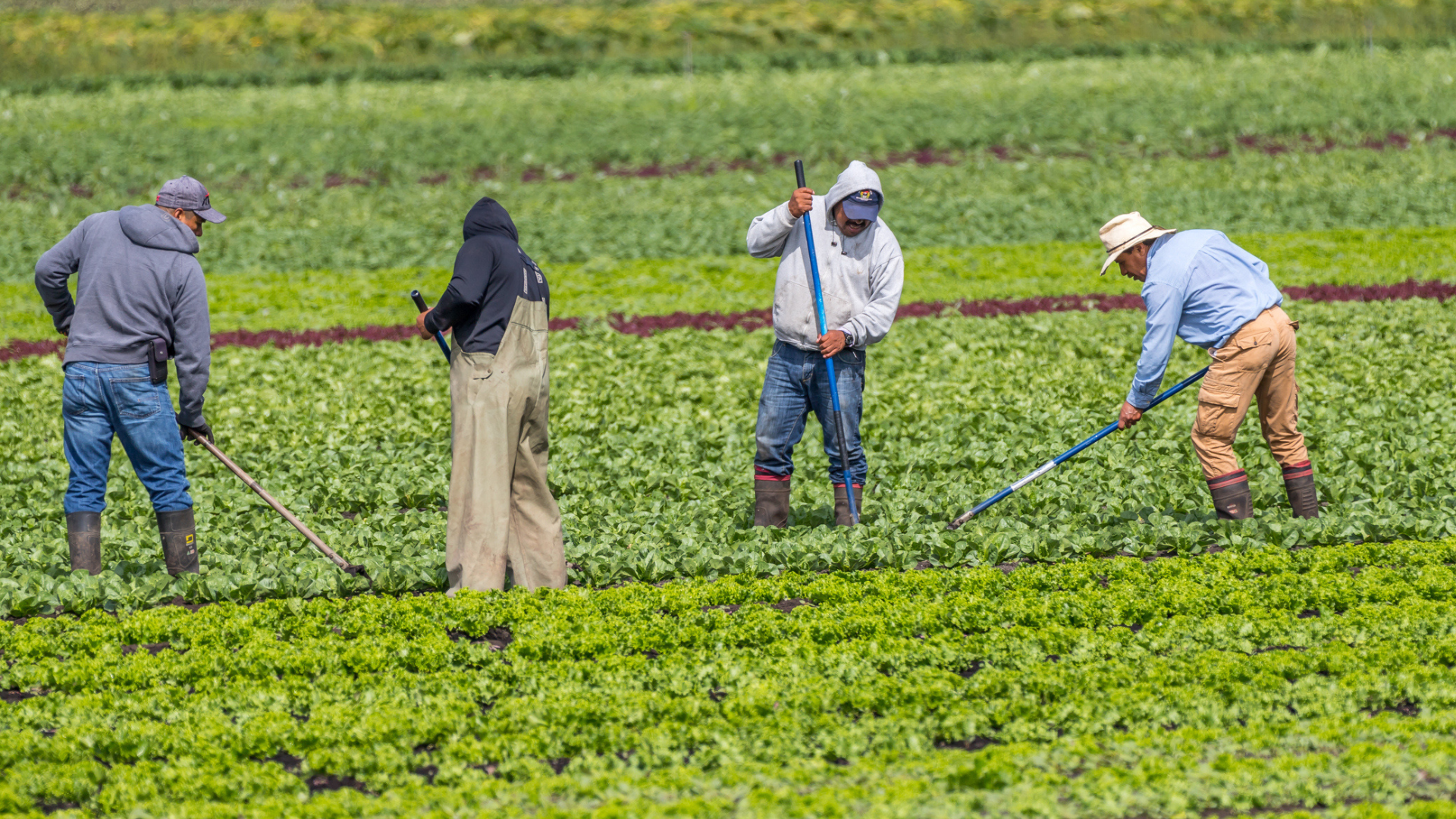HUMAN RESOURCES AND MANAGEMENT RESEARCH SOCIETAL IMPACT STRATEGIC PLAN | RESEARCH AND SCHOLARSHIP
New McMaster research centre tackles the future of work
April 10, 2025 ·
Contributed by: Matt Innes-Leroux
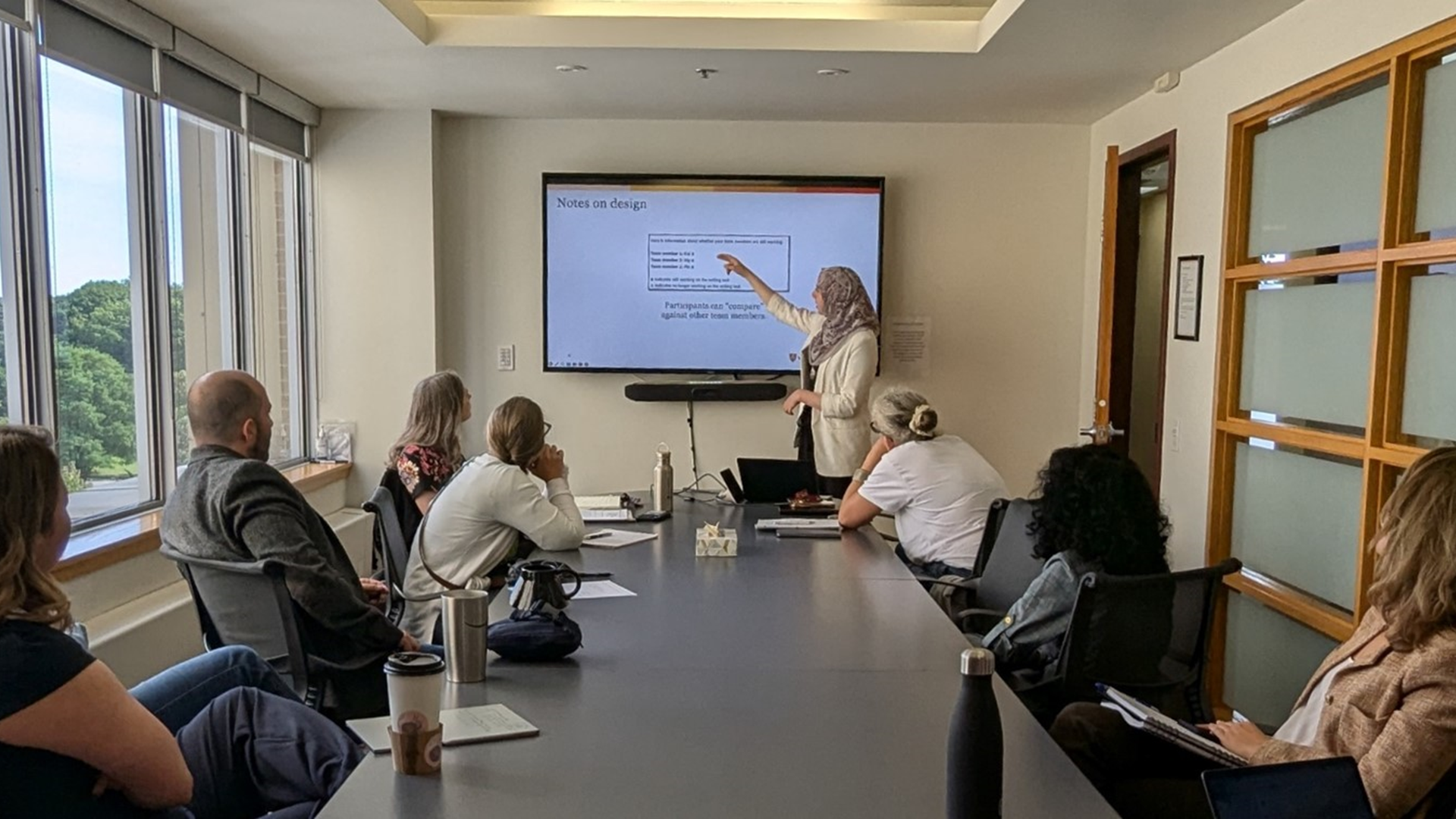
As workplaces undergo rapid transformations due to technological advancements and economic shifts, the McMaster Centre for Research on Employment and Work (MCREW), is investigating these changes to understand their impact on workers, employers and communities.
MCREW is a collaboration between 27 researchers from all six McMaster University faculties – the DeGroote School of Business, and the Faculties of Engineering, Health Sciences, Humanities, Science and Social Sciences.
“We started MCREW as a way to bring together researchers from all across campus,” says Catherine Connelly, director of MCREW and a professor of Human Resources and Management at DeGroote. “We all have a different perspective on how we should study these issues, but we’re all interested in the same topic: changing work, workers and workplaces.”
For instance, Health Sciences researchers at MCREW may examine issues facing healthcare workers, organizational behaviour researchers from DeGroote might study the impact of a living wage, while social scientists may study work-life balance. This cross-disciplinary exchange can spark new insights that wouldn’t emerge within a single field.
“This is where innovative ideas come from, when two academic traditions collide,” says Connelly.
“We’re all interested in the same topics, but sometimes from very different points of view, different methods, and we all know different literatures and theories. It’s always interesting to come together because it’s a topic that everybody is interested in, but we look at it in completely different ways.”
Connelly is also the director of the McMaster Organizational Behaviour Laboratory, a dedicated research facility at the DeGroote School of Business. While separate from MCREW, the lab has multiple rooms and spaces that can be used for experimental research on work, workers and jobs.
MCREW researchers hope to provide insight into pressing issues affecting today’s workforce including the economic disruption created by the ongoing trade dispute between Canada and the United States.
“The biggest challenge that Canadian organizations are facing has to do with tariffs and the uncertainty around every company in terms of dealing with this new economic situation,” says Connelly.
“MCREW would really like to partner with organizations and study some of the best practices and ways that we can help. Organizations will often have data to share or problems we can study to develop a better understanding that other Canadian companies can also use.”
Beyond trade disputes, the long-term impacts of shifting workplace norms, remote work and return to office mandates brought on by the COVID pandemic will also be a focus for MCREW researchers.
“It’s hard to remember before COVID, when companies would say ‘your job could never be done from home,’ and then suddenly it could, and then now, years later, workers are being told it can’t be done from home anymore,” says Connelly.
“There’s a lot of fallout from that, and companies are finding their way in terms of what works for them, but this will be with us for the next five, 10 or 15 years.”



